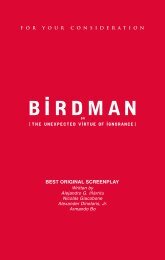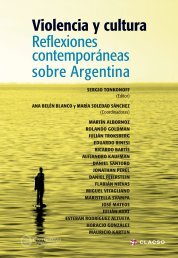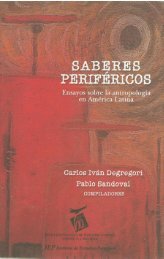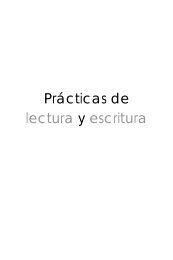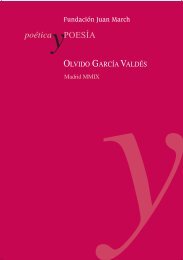blueprints
blueprints
blueprints
Create successful ePaper yourself
Turn your PDF publications into a flip-book with our unique Google optimized e-Paper software.
84 | robert hass<br />
shelves. I had associated them with the provincial byways of literature and<br />
had passed them by.<br />
So my own education in these traditions was random, spotty. I knew<br />
that some part of my project was self-education. I was not alone in this. A<br />
whole generation of courses in American environmental literature has<br />
sprung up in the last ten years, born, I am sure, from the same perception<br />
and the same sense of urgency. And there is even a professional organization<br />
of writers, teachers, and scholars, the Association for the Study of Literature<br />
and the Environment (ASLE), who gather each year to talk about this new<br />
work. They were thinking, are thinking, that our ways of thinking about the<br />
planet and its life need to be part of formal education in the humanities and<br />
not just in the sciences. Our disciplines—with the traditional chasm<br />
between humanities and the sciences that C. P. Snow described in Two Cultures—did<br />
not fit the world we had made and were confronted by, and it<br />
was time to do something about it.<br />
Around this time and in this state of mind, I came to the peculiar and<br />
temporary job of poet laureate of the United States. The poet laureate’s<br />
position is an annual appointment at the Library of Congress, and it entails<br />
three responsibilities: to give a poetry reading at the Library, to give a lecture,<br />
and to curate and host an evening literary series in the Madison Building<br />
on Capitol Hill in the fall, winter, and spring seasons. In addition to<br />
those responsibilities, there were opportunities. One of them, I discovered,<br />
was to host some kind of symposium on a literary subject. There was a small<br />
budget usually available for that purpose (which came from the laureate<br />
endowment, not from taxpayer’s money, a distinction I discovered was<br />
important to many taxpayers when I found myself taking questions on<br />
C-SPAN). I thought immediately, because I was the first person west of the<br />
Mississippi to hold the laureate post, that I should do something to reflect<br />
the literary traditions of the West, and I proposed the prospect of a symposium<br />
of writers in the natural history and environmental tradition. I<br />
returned the following week to find that there was no budget available for<br />
a conference, but I had already gotten to like the idea and asked Prosser<br />
Gifford, the Library’s director of cultural programs and, I knew, an avid<br />
sailor with an interest in marine ecology, if I could go ahead with it if I<br />
found the money myself.<br />
This would have been September 1995. It was an interesting time in<br />
Washington, DC. During the midterm elections the previous fall, the<br />
Republican Party had seized control of the U.S. Senate for the first time in



